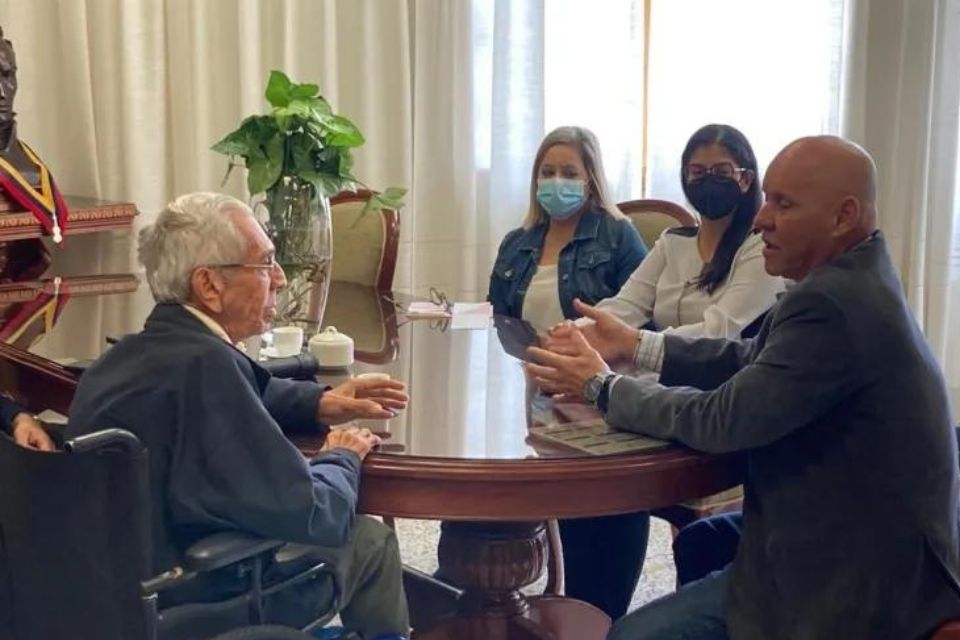The specialists in human rights of the ULA assure that there is double responsibility, that of the State, which must be requested before the Inter-American Commission on Human Rights of the OAS, and the individual criminal responsibility of the high-ranking public officials who in their chain of command have intervened to deny him the rights
The Human Rights Observatory of the University of Los Andes (ULA) and the El Amparo Foundation They are coordinating a joint work plan, in the short term, to denounce the Venezuelan State for serious human rights violations committed against active and retired teachers before the Inter-American Commission on Human Rights (IACHR), in Washington, for crimes against humanity before the International Criminal Court (ICC) in The Hague.
In a meeting held last Friday, October 14, at the headquarters of the ULA rectorate, in Mérida, between the rector, Mario Bonucci; the president of the El Amparo Foundation, general director of the International Committee against Impunity in Venezuela (Ciciven), and retired professor of that university, Walter Márquez, and representatives of the university’s Human Rights Observatory, discussed the low salaries received by teachers and the administrative and worker staff of the university, the humanitarian consequences that this has entailed, since they do not have access to an adequate health system, so they will collect specific cases to raise this situation before the agencies international, for being a systematic and repetitive act of extermination crime typified in the Rome Statute for the deprivation of food and medicine.
“We are designing a work plan to investigate and document specific cases of human rights vulnerability and crimes against humanity. The fact that active and retired university professors do not earn even a minimum wage that covers the basic needs and diet is a crime against humanity due to the deprivation of access to food and medicine,” said Márquez.
The human rights defender also explained that there is a double responsibility: that of the State, which must be requested before the Inter-American Commission on Human Rights of the OAS, and the individual criminal responsibility of high-ranking public officials who have intervened in their chain of command to deny the rights to a decent salary, social security, and also full respect for university autonomy and its members.
«The university is a democratic space, when the university is attacked, democracy is attacked and we have to fight to rescue constitutional, democratic and civil values. They were the spaces of the Central University of Venezuela in which the heroes of independence were formed, and the university continues to resist against a totalitarian and anti-democratic regime, “Márquez stressed.
Make the outrages visible
Regarding this new path of work, the rector of the ULA, Mario Bonucci, indicated that the synergy with the El Amparo Foundation will produce positive results because it will make visible the abuses committed against university personnel, and will allow the creation of a culture of defense of human rights. humans.
«The Human Rights Observatory not only serves to defend the university, it helps us to make visible all these abuses and things that are happening. Our observatory, which was created as a result of protests in 2014, seeks to make citizens visible and empower them, and that is what Walter Márquez does… I think that the most important thing is that regardless of whether or not you file a complaint, you can have a people empowered in their rights, that says I have the right to protest, I have the right to speak. Hope is built that way,” Bonucci said.
*Read also What happened in Las Tejerías? ULA risk expert explains
With information from The nation
Post Views:
381








